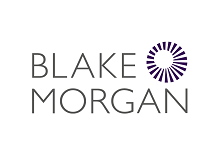
Please note: Our website no longer fully supports IE11, as such you may encounter issues using our website, please try an alternative browser such as Google Chrome, Mozilla Firefox, Microsoft Edge (Windows) or Safari (Mac).

Please note: Our website no longer fully supports IE11, as such you may encounter issues using our website, please try an alternative browser such as Google Chrome, Mozilla Firefox, Microsoft Edge (Windows) or Safari (Mac).

From 19 July 2021 it will no longer be a legal requirement to wear a face covering in most public places in England. However, despite this, the message coming from government is that people should continue to do so. Significantly, some airlines, such as Ryanair, British Airways, Virgin and EasyJet have already stated that face coverings will still be mandatory on their flights.
The announcement comes in the face of rising infection rates and the expectation of a third wave. However, more and more people are receiving their first and second COVID vaccinations and the government has said that we need to learn to live with coronavirus. Given that being vaccinated does not stop someone becoming infected or passing the virus on, account needs to be taken of those who have not had the jab or who have a low immunity.
Face coverings are worn predominantly to protect others rather than the wearer in enclosed indoor spaces. Research suggests that whilst they help reduce transmission of COVID, they are not as effective as maintaining social distancing. Employers will therefore need to decide whether its staff (including agency workers and contractors) should be required to wear a face covering in the workplace and should carry out a risk assessment to determine what the risks are and what can be done to mitigate them. Some of the factors that employers may take into account include:
In addition, employers should consider the government's guidance on "working safely during coronavirus", which is applicable to England. This is sector specific guidance and sets set out practical measures that can be taken to minimise the spread of COVID depending on the type of workplace.
Interestingly, the guidance has consistently stated that employers should not rely on employees wearing face coverings, as there are more effective ways of managing the risk of spreading coronavirus such as minimising contact time, working in set groups of people and increasing hand and surface washing. The guidance is due to be updated following the government's announcement to move to stage 4 of the roadmap for England on 19 July.
It is important for employers to communicate what working arrangements will look like from 19 July in relation to interacting with colleagues and customers. This should include explaining what risk assessments have been carried out and what measures will be in place to ensure a safe system of working, including how staff interact with customers. Employers should expect employees to have questions and concerns about returning and consider holding webinars or issuing a FAQ document.
If there is to be a rule or policy in place that face coverings need to be worn then the employer should provide suitable face coverings and guidance on how to use them. Employers need to be mindful of any staff who are exempt from wearing face coverings as forcing them to do so may be discriminatory. Introducing new rules or policies may also impact on other workplace policies and procedures, which should be reviewed and updated if required.
If an employee refuses to wear a face covering at work when requested to do so then employers need to understand why and provide support and reassurance where appropriate. If there is no legitimate basis for the employee's refusal or non-attendance then disciplinary action may be appropriate. In the recent case of Kubilius v Kent Foods a delivery driver was found to have been fairly dismissed for refusing to wear a face covering at the request of a client. Although he was dismissed when face coverings were not a legal requirement, the request to wear one was found to be a reasonable health and safety instruction. Each situation will, of course, turn on its own facts and what is fair in one situation may not be in another.
In contrast to the position in England, the Welsh Government has recently announced that face coverings will still be required by law in Wales in some settings, such as public transport and health and social care settings. The Scottish Government has said there will be an ongoing need for face coverings when other restrictions are lifted on 9 August and it is anticipated that they will still need to be worn whilst using public transport and visiting shops.
If you would like assistance with any of the issues raised in this article, please contact:
Daniel Scognamiglio, PARTNER - TRAVEL
E: Daniel.scognamiglio@blakemorgan.co.uk
T: 023 8085 7339
Vicky Schollar, SENIOR ASSOCIATE - EMPLOYMENT
E: Vicky.schollar@blakemorgan.co.uk
T: 023 8085 7164
